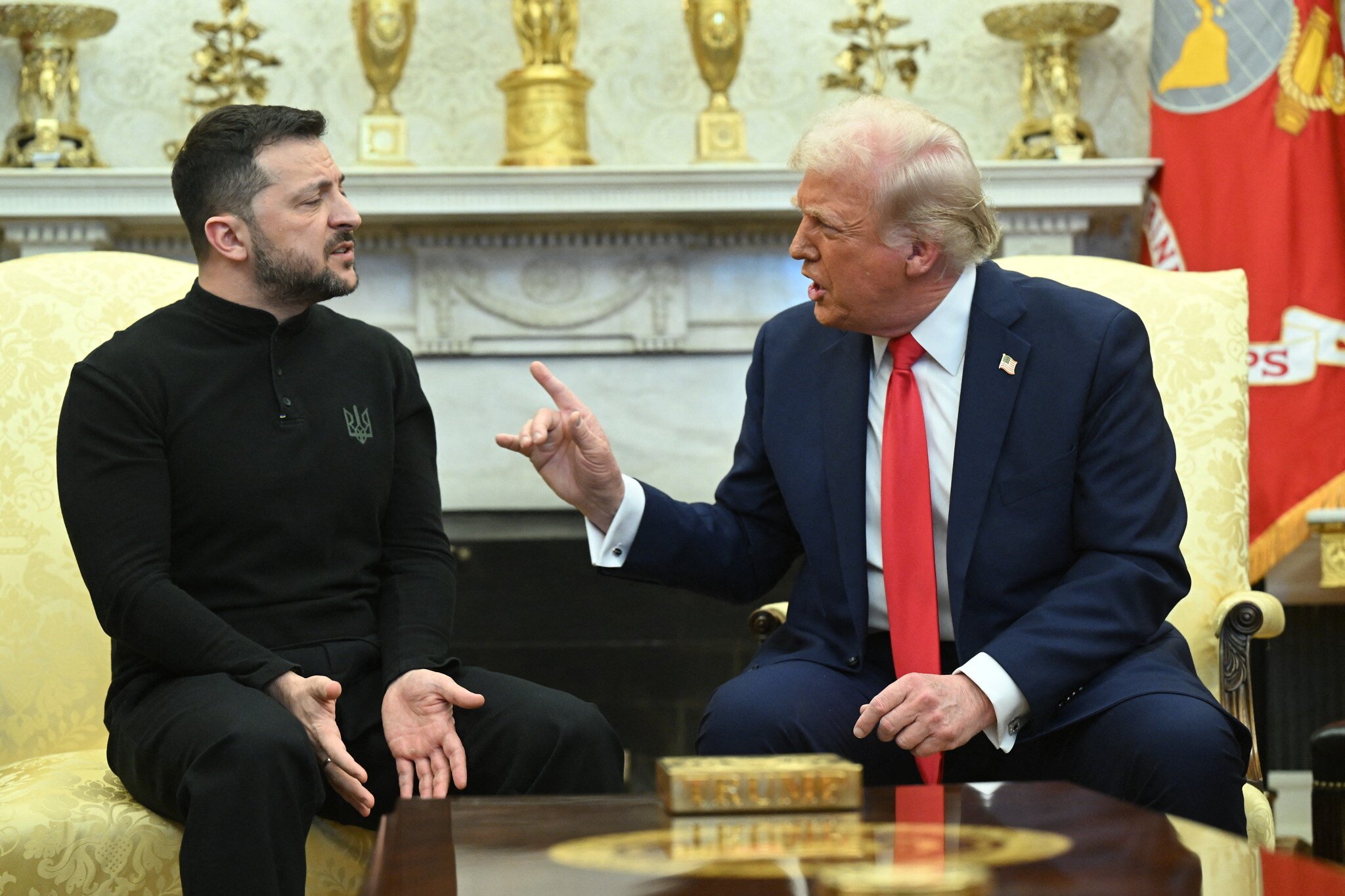Trump Reverses Course on Ukraine, Pledges More Weapon Support
President Donald Trump, on July 10, communicated an alteration in America’s approach towards the Ukrainian conflict by revealing plans to increase weapon supplies to the region. This announcement not only suggested a vital shift in the administration’s strategy but indicated an advanced comprehension of the United States’ role in this war. For several months leading up to this moment, President Trump had been consistent about his plans for a prompt termination to the Ukrainian war, even causing a halt in U.S aid to Ukraine. With this move, the President is making his stance clear that he is a staunch proponent of interventionist foreign policy.
The latest move from the President seems to prove to the isolationist right, which he once aligned with, that their perception of international diplomacy might be illusionary. During his campaign and initial tenure, Trump confidently predicted that his term would single-handedly put an end to the war in Ukraine. However, the reality proved to be much more complex, testing his conviction, despite his incessant belief in a swift conclusion through diplomatic negotiations.
Seeds of frustration first sprouted in Trump’s relations with Ukrainian President Volodymyr Zelenskyy, culminating in the notable disagreement in the Oval Office involving Vice President JD Vance, Trump’s presumed ambassador of isolationist sentiment, and Zelenskyy. Reacting to the stalled progress, President Trump withheld military aid to Ukraine, intent on using diplomatic pathways to resolve the crisis, whilst intensifying criticism of Zelenskyy’s handling of the war.
As time went on, Trump’s discouragement intensified, not with Zelenskyy, but with Russian President Vladimir Putin, for his apparent lack of enthusiasm in pursuing peace. The conflict in Ukraine showed no sign of slowing down, with Russia’s missteps evident during negotiations. As Trump embarked on his second term, he remained determined to bring the Ukrainian War to an end, both to cater to the right-leaning factions and display his negotiation prowess.
However, the stark reality remains that America’s interests lie in extending support to Ukraine in its ongoing conflict with Russia. Ukraine, despite facing formidable challenges, continues to wage war, while Russia shows little sign of urgency to reach a consensus and conclusion to the relentless conflict. Reportedly, Russia’s exorbitant demands in negotiation talks have noticeably exceeded even the high allowances of Vice President Vance, famously indifferent to Ukraine’s situation.
Acknowledging this reality represents a crucial course correction for Trump. Gossip suggests that his wife might have played a role in grounding him to the practicalities enmeshed in global diplomacy. This acceptance far outweighs his prior inclination which allowed his political ambitions to dictate international relations.
A remarkable transformation seems to have enveloped President Trump, moving him away from his anti-interventionist tendencies. Interestingly, he appears to be re-embracing his first-term foreign policy which resonated well with conservative political thinkers. This reconsideration of his stance on Russia is especially surprising, considering his earlier concrete resolve to negotiate a peaceful conclusion to the war.
Now, Trump’s strategy has evolved, prominently displaying support for Ukraine by supplying arms, which contrasts with his earlier stance of swift negotiation led peacekeeping. This act is likely to extend the conflict, yet it represents a calculated move to ensure Ukraine’s survival past the turbulence of war.
President Trump seems to have finally recognized the strategic significance of Ukraine’s existence post-war. He appears willing now to risk causing friction within his administration, particularly with those indifferent or even leaning favorably towards Russia. The dramatic chain of events leading up to and following the attempted bombing in Iran seems to have played a major role in shifting Trump’s perspective.
Convincingly, Trump’s renewed readiness to uphold American interests on foreign soil is a change endorsed by many, even if it arrives late in his presidential tenure. His shift away from anti-interventionist diplomacy brings optimism for a stronger and more proactive U.S. role in the world, even if it means ruffling a few feathers within his administration or amongst his conservative supporters.


